05:04
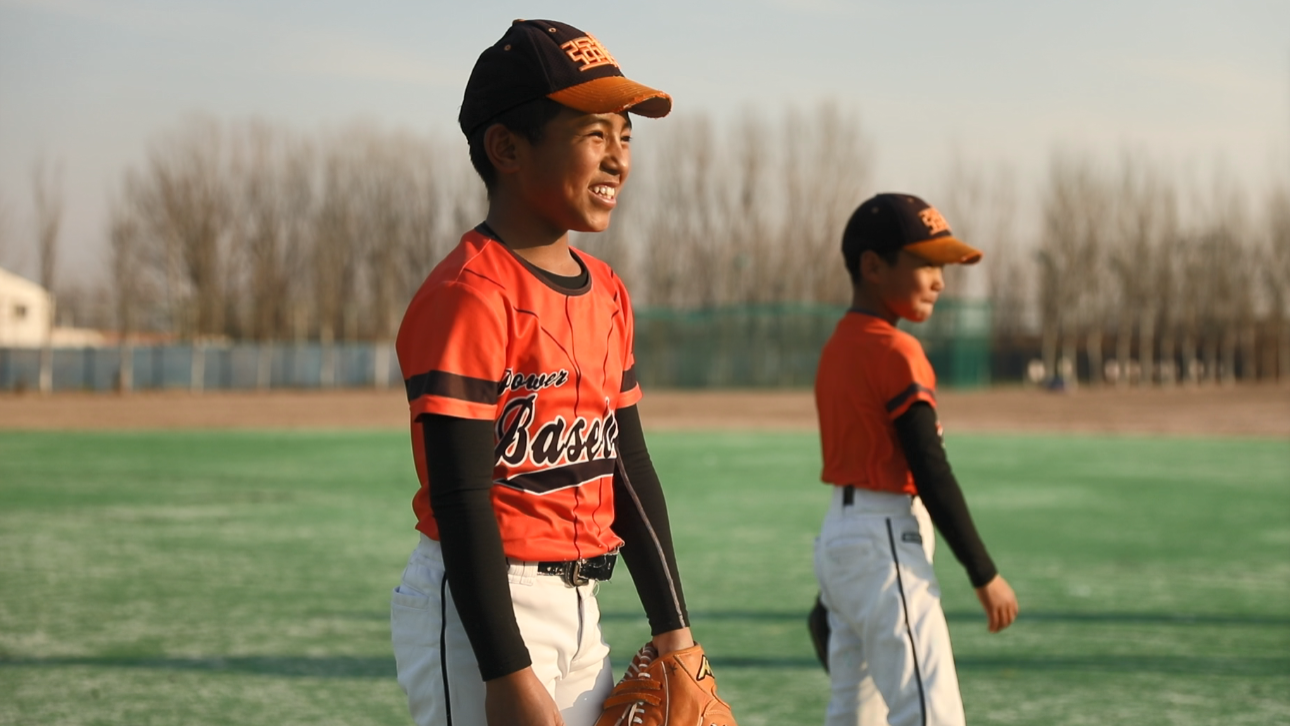
In a beautiful mountainous area, children jump over creeks clear as mirrors, laughing and racing on country roads. Joyful as it is, the roads sometimes don't necessarily lead to proper education.
Sun Lingfeng, 42, former captain of the China men's baseball team, also famously recognized as "forever the first batter," has been to such places many times during the past five years looking for kids in need of help as the founder of "Power Baseball Angel Foundation."
"I've wanted to help underprivileged children since I was a player. I was impressed by them during charitable activities. After retirement from my athletic career, I devoted my time to promoting baseball in China, because the sport wasn't very popular here."
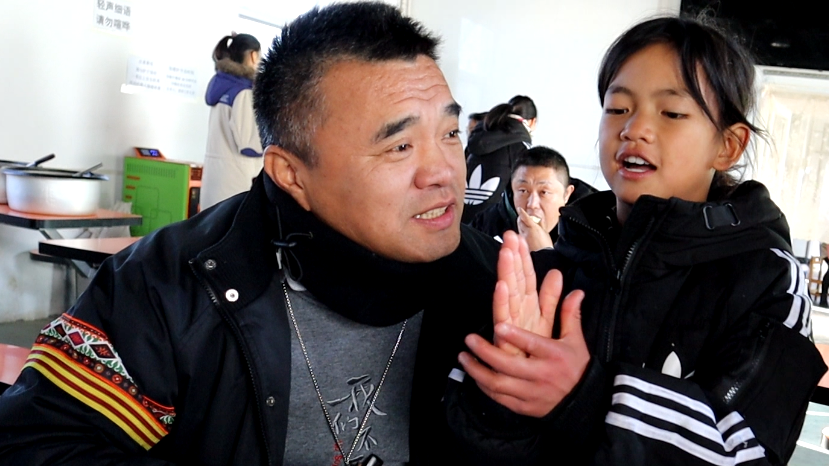
Sun Lingfeng (L), founder of Power Baseball Angel Foundation with a girl on the team during lunch at the training center in Beijing, China, December 4, 2020. /CGTN
Sun Lingfeng (L), founder of Power Baseball Angel Foundation with a girl on the team during lunch at the training center in Beijing, China, December 4, 2020. /CGTN
In November 2013, Chinese President Xi Jinping put forward the idea of targeted poverty alleviation. A targeted measure should be tailor-made based on actual conditions of the impoverished counties, such as creating sustainable micro-business, relocating people from remote areas, and providing education and training.
Sun was working as the head coach for the Jiangsu provincial team then. With more than 20 years of experience with baseball, the idea of combining his two dreams – aid for underprivileged kids and baseball promotion – started taking shape in his head.
In 2015, Sun launched the foundation to provide baseball training and education for children in poverty, and has since taken in 78 kids. Among the 67 who stayed, children of minority ethnic groups make up 75 percent of them.
Growing up like other kids, only harder
The PB (Power Baseball) Angel Baseball Center is situated in Tongzhou District on the outskirts of Beijing, and has dormitories, a dining hall, a library, and two training pitches.
"Come on! Five more!" "Safe!" the coach shouts.
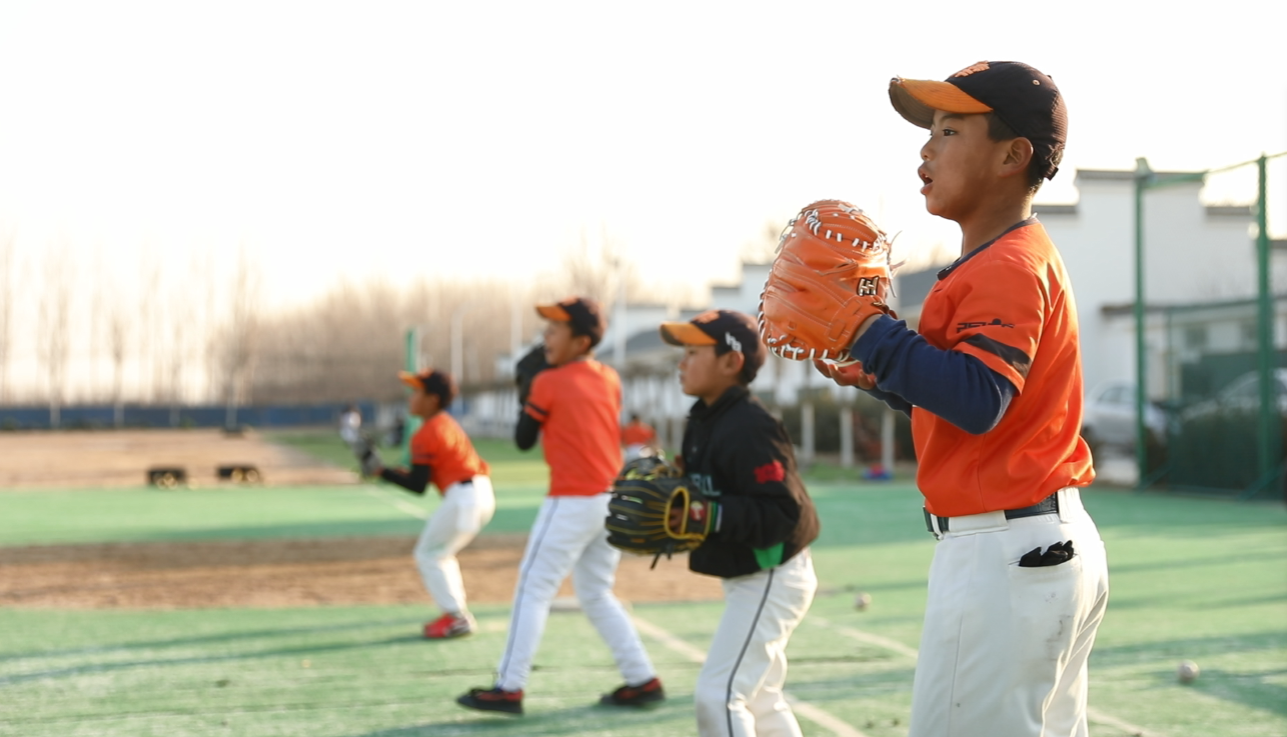
Power Baseball boys in action during a training session in Beijing, China, December 11, 2020. /CGTN
Power Baseball boys in action during a training session in Beijing, China, December 11, 2020. /CGTN
The kids are in high spirits during training – throwing balls, swinging bats, doing lifting, and running drills. One can hardly spot the occasional flicker of doubt behind their eyes.
But unlike most children, some of these underprivileged children struggle with issues of abandonment and low self-esteem. A child named Ma Hu used to call himself a "stray dog" when he first came to the team at age 12, exemplifying how his living situation has been internalized into his identity.
Some of these children were abandoned, some raised by grandparents who are incapable of working, or left behind by parents who headed to the city for work.
Speaking of his father who became a migrant worker far away in some city, a child said: "I'd rather he didn't come home."
Still, they manage to find comfort in simple joys such as spending time with a loving grandmother, or honoring the parents they never knew with flowers and fresh tree branches under a big tree.
The foundation has given them the chance to chart out a completely different kind of life. But it's still not a cake walk.
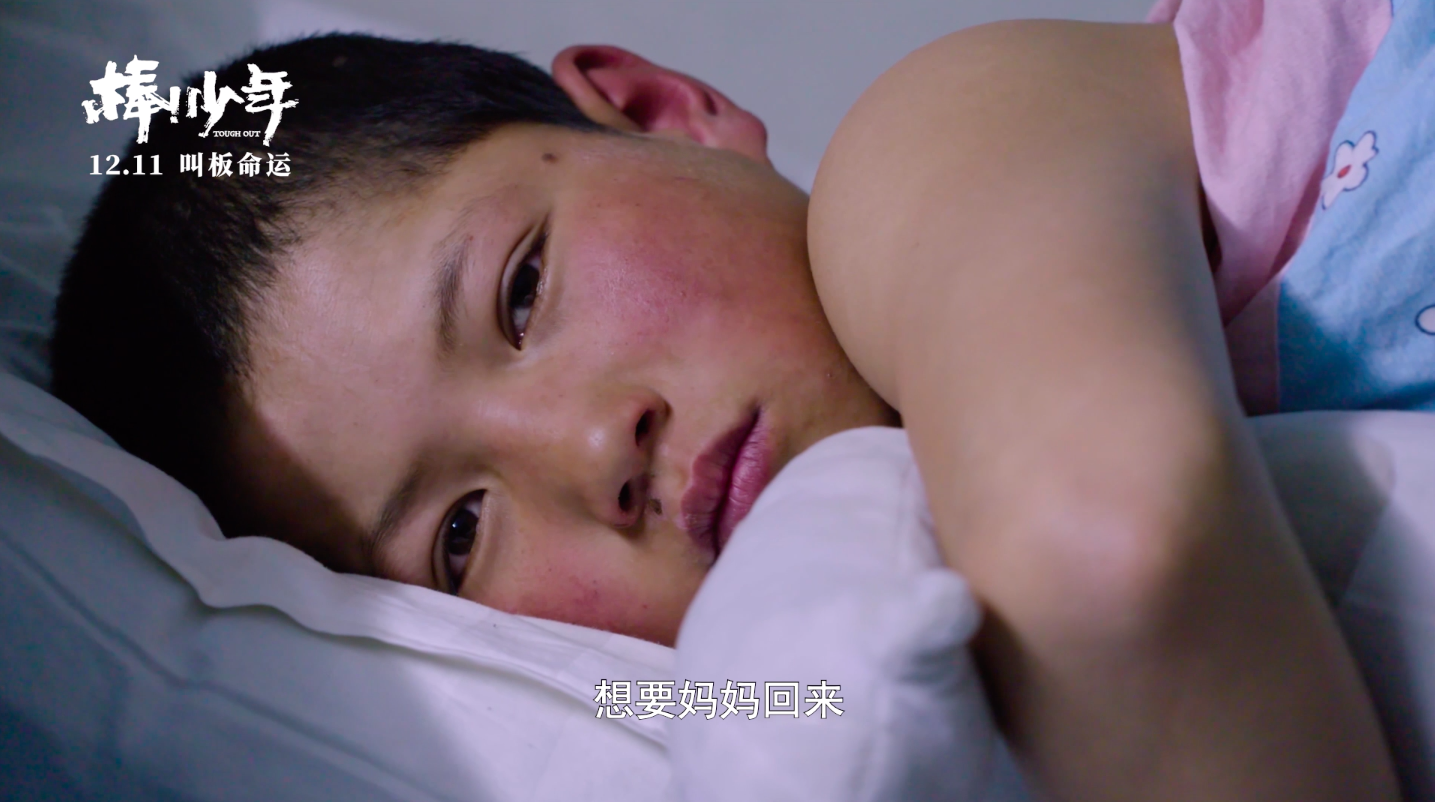
A screenshot of Ma Hu, the leading boy in the documentary "Tough Out." The caption reads, "I want my mother to come back."
A screenshot of Ma Hu, the leading boy in the documentary "Tough Out." The caption reads, "I want my mother to come back."
A documentary about the Power Baseball team named "Tough Out" was released nationwide on December 11, and offered a unique perspective about these children. Spanning three years, the film crew followed them and documented the boys' first few years on the team.
Life towards professional athleticism include tough training and games that take one through emotional highs and lows, which can break even a grown man. And it's arguably more difficult for these youths who have to pull it off while struggling with low self-esteem, homesickness, and quirky little problems that make their caretakers want to scream.
Putting the youngest ones to bed itself is already a major task, so is resolving physical fights caused by careless but unintentional words. Education for these children goes way beyond baseball training.
Despite that, they remain hopeful about the future.
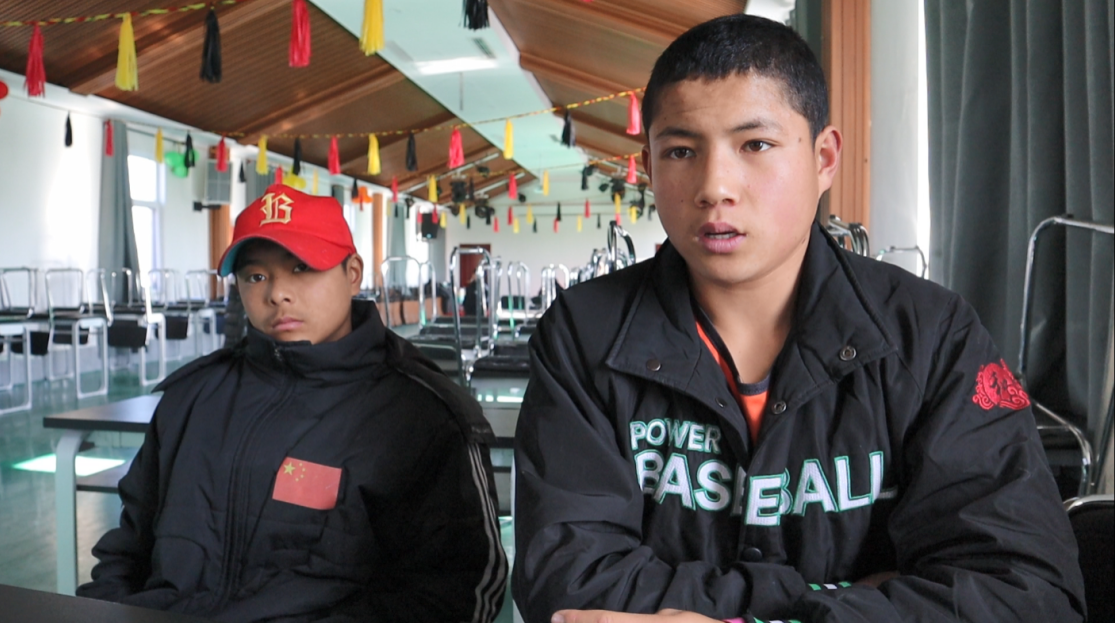
Ma Hu (R) and his teammate in Beijing, China, December 4, 2020. /CGTN
Ma Hu (R) and his teammate in Beijing, China, December 4, 2020. /CGTN
"When I enter the high school age group, I would really like to play with the teams from Summer Koshien (the National High School Baseball Championship of Japan). They're good, but I don't think I'll lose," said Ma, a 15-year-old teenager now brimming with confidence, adding that he wants to be a middle infielder.
For people who leave their birthplaces in search of better education and job opportunities, nostalgia is a common feeling. But having seized the opportunity offered to them, these children no longer see themselves as just orphans or someone who's no good.
Girl power
Sun also spoke of his goal of helping girls, recounting an experience that pushed him to accelerate building the girls' team.
"A few years ago, I went to the Liangshan Yi Autonomous Prefecture in southwestern China's Sichuan Province, and saw a girl carrying heavy firewood on her way to school, holding her little sister. The next time I visited the area and saw her again, she was married already."
As of December 2020, there are 26 girls on Sun's team, with the U10 and U12 teams launched already.
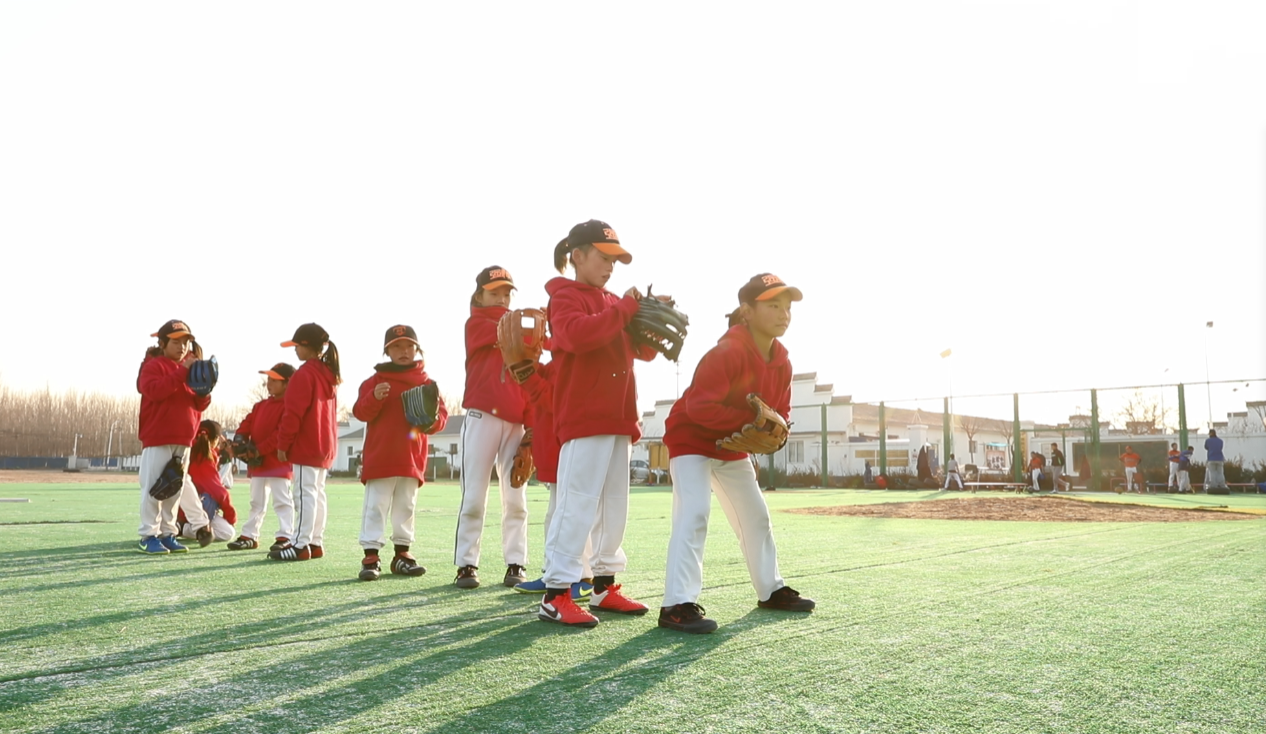
Power Baseball girls in action during training session in Beijing, China, December 11, 2020. /CGTN
Power Baseball girls in action during training session in Beijing, China, December 11, 2020. /CGTN
The girls in this team are younger, and perhaps luckier. When asked about their dreams, an 8-year-old said, though a bit shy, "I'd like to play in the Olympics."
"The training is no tougher than carrying woods on our back."
There's no reason not to believe great things can be expected from these girls. As people often don't realize, hard-work itself is an ability. With everything managed well, these girls' Olympic dream isn't just a dream.
Even if it doesn't happen, the efforts to empower girls should be carried on, as well as the awareness of uplifting young women of the future when reaching out to underprivileged children, because as far as we know, "women hold up half the sky."
Video editor: Geng Siyuan

